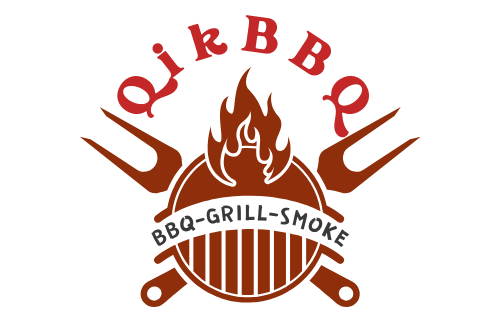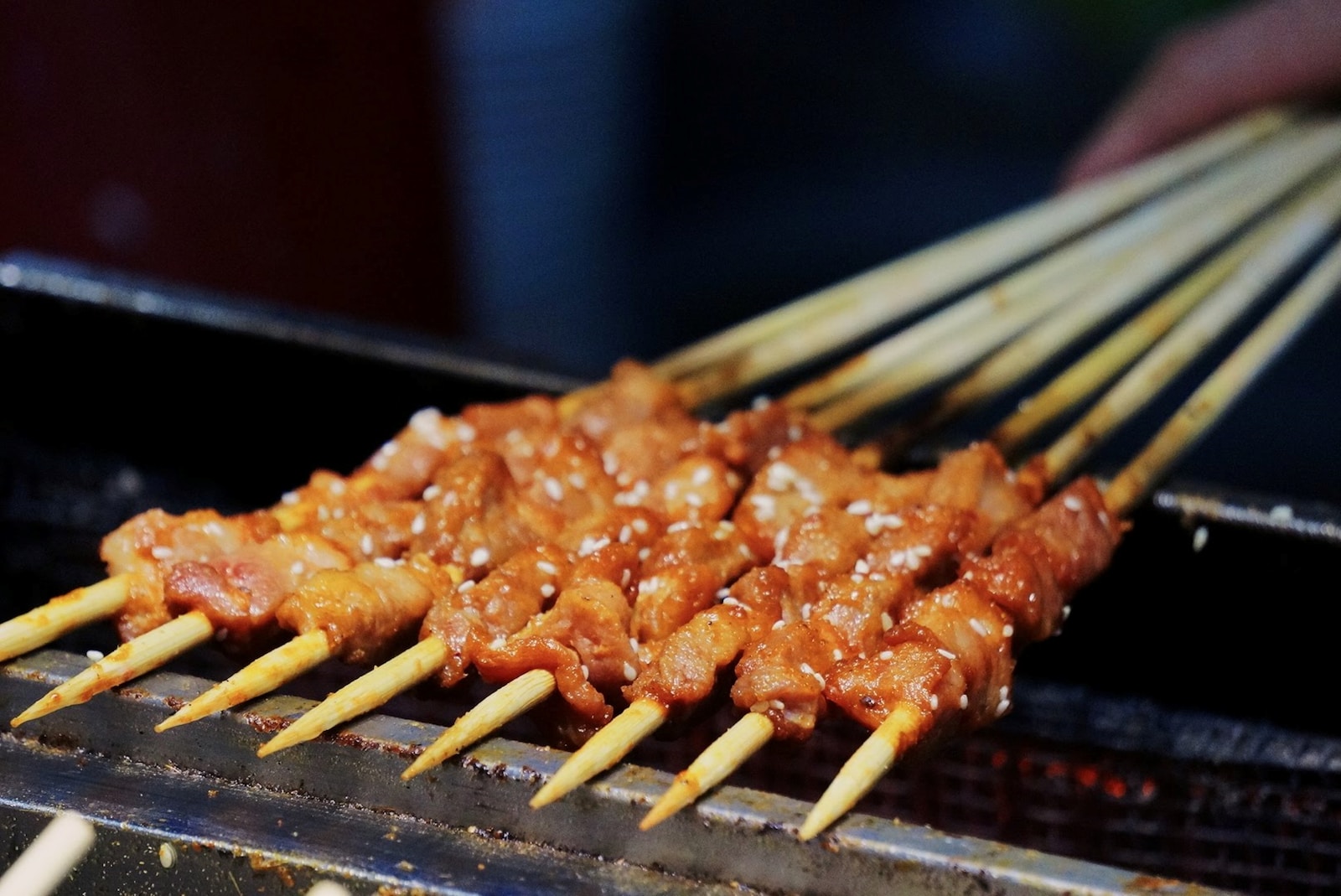Imagine a world without the mouth-watering aroma of sizzling barbecues. It’s hard to fathom, isn’t it? Barbecue, a culinary art form loved by many, is a universal language that transcends borders and cultures. From the smoky American BBQ to the flavorful Korean Bulgogi, the evolution of BBQ across cultures is a fascinating journey that reflects the diversity and creativity of humanity.
In this article, we will explore the rich history, unique techniques, and delectable flavors that have shaped BBQ traditions around the world. So grab a napkin, prepare your taste buds, and let’s embark on a flavorful adventure!
The Origins of BBQ
Early forms of BBQ
You may be surprised to learn that BBQ has a long and rich history that dates back thousands of years. The origins of BBQ can be traced back to early civilizations that discovered the delicious art of cooking meat over an open fire. These early forms of BBQ were simple but effective, utilizing the natural resources available to create mouth-watering meals.
BBQ in ancient civilizations
Ancient civilizations across the globe developed their own unique techniques for BBQ. From the ancient Greeks and Romans to the Mayans and Aztecs, BBQ was a significant part of their culinary traditions. In these societies, BBQ was not only a means of cooking food but also a way to bring people together and celebrate important events and rituals.
BBQ in the Americas
Native American BBQ techniques
The Native American tribes of North America had their own distinct BBQ techniques. They used various methods such as smoking, grilling, and pit cooking to prepare their food. The Native Americans would often cook large quantities of meat, such as bison, deer, and fish, to feed their communities. These BBQ techniques were not only practical but also deeply rooted in their cultural traditions.
European influence on American BBQ
With the arrival of European settlers in the Americas, the BBQ traditions began to evolve. The Europeans introduced new techniques, seasonings, and cuts of meat, which had a significant impact on American BBQ. Over time, BBQ became a fusion of Native American and European culinary practices, resulting in the diverse and beloved BBQ culture we know today.
BBQ in Asia
Chinese BBQ traditions
Chinese BBQ, known as “char siu,” has a long and esteemed history in Chinese cuisine. It involves marinating slices of meat, usually pork, in a flavorful combination of spices, sauces, and sometimes honey, before roasting or grilling it. Char siu is widely enjoyed in China and has also become a popular dish in Chinese communities around the world.
Korean BBQ: A cultural phenomenon
Korean BBQ, or “gogi-gui,” has gained immense popularity worldwide. In Korean cuisine, BBQ is a social experience, with friends and family gathering around a grill to cook various cuts of marinated meat. Korean BBQ is known for its distinctive flavors, including gochujang (spicy red pepper paste) and ssamjang (a savory paste). It has become a cultural phenomenon, representing the vibrancy and warmth of Korean hospitality.
Japanese BBQ: Yakiniku
Japanese BBQ, called yakiniku, has its roots in Korean BBQ but has developed its own unique style and flavors. Yakiniku typically involves grilling bite-sized pieces of meat, such as wagyu beef, pork, and chicken, on a tabletop grill. It is often accompanied by a variety of dipping sauces and condiments. Yakiniku is not just about the food; it is an interactive dining experience that brings people together to savor the delicious flavors and enjoy each other’s company.
BBQ in Africa
South African Braai
In South Africa, BBQ is known as “braai” and holds great cultural significance. The braai tradition involves grilling meat, often game meat or boerewors (a type of sausage), over an open fire. Braais are not just about the food; they are a social event where friends and family gather to share stories, laughter, and deliciously grilled meals.
West African grilling traditions
In West Africa, grilling is a prevalent cooking method that has been passed down through generations. It involves marinating meat or fish in a blend of spices and then grilling it over a charcoal or wood fire. West African grilling traditions celebrate the bold flavors and vibrant spices that are characteristic of the region’s cuisine.
BBQ in the Middle East
Iranian Chelow Kabab
Iranian BBQ, known as chelow kabab, is a beloved culinary tradition in Iran. Chelow kabab typically involves grilling skewered pieces of marinated meat, such as lamb or chicken, over a charcoal fire. The grilled meat is served with saffron-infused rice and accompanied by grilled tomatoes and vegetables. Chelow kabab showcases the rich flavors and aromatic spices that are integral to Iranian cuisine.
Turkish kebabs
Turkish kebabs have gained international popularity due to their delicious flavors and diverse variations. Kebabs can consist of marinated and grilled meat, such as lamb, beef, or chicken, served in various ways, including wraps, skewers, or on a bed of rice. Turkish kebabs exemplify the culinary prowess of Turkish cuisine and are enjoyed by people around the world.
BBQ in Europe
Medieval European spit-roasting
During the Middle Ages, spit-roasting was a prevalent BBQ technique in Europe. Large pieces of meat, such as whole animals or large cuts, were skewered on a spit and slowly rotated over an open fire. This method ensured even cooking and resulted in tender and flavorful meat. Spit-roasting was an important part of medieval feasts and celebrations.
Barbecue traditions in Spain
Spain has a rich BBQ culture with various regional specialties. One prominent Spanish BBQ tradition is the “asado,” which involves grilling meats, such as lamb, pork, or beef, over wood or charcoal fires. Spanish BBQ is known for its simplicity, allowing the natural flavors of the meat to shine through. The Spanish also have a tradition of cooking seafood on the grill, adding a delightful twist to their BBQ repertoire.
German grilling culture
In Germany, grilling, or “grillen,” is a cherished pastime embraced by both locals and visitors. Germans have a passion for bratwurst sausages, which are grilled to perfection and enjoyed with sauerkraut and mustard. Grilling in Germany is often accompanied by social gatherings, picnics, and festivals, where people come together to indulge in delicious grilled meats and spend quality time with loved ones.
Influences and Adaptations
Colonial influences on BBQ
As European powers colonized various parts of the world, they brought their BBQ traditions with them. The colonization process led to the exchange of culinary techniques and ingredients, which influenced the evolution of BBQ in different regions. The merging of cultural practices resulted in unique BBQ styles and flavors, such as the fusion of African, European, and Native American influences in American BBQ.
Globalization and the spread of BBQ techniques
In the modern era, globalization has played a significant role in the spread and popularity of BBQ techniques worldwide. As travel and communication have become more accessible, people have been exposed to different BBQ traditions and have developed a taste for diverse flavors. This cultural exchange has led to the adoption and adaptation of BBQ techniques across borders, creating new and exciting culinary experiences.
Modern Innovations in BBQ
Regional variations and fusion cuisines
In recent years, BBQ has seen a surge in creativity, with chefs and home cooks experimenting with regional variations and fusion cuisines. From Texas-style smoked brisket to Korean-inspired BBQ tacos, these innovative dishes showcase the adaptability and versatility of BBQ. Culinary enthusiasts are continuously pushing the boundaries of traditional BBQ, creating exciting flavor combinations that cater to diverse palates.
BBQ in high-end restaurants
Not only is BBQ a beloved street food and backyard cooking tradition, but it has also found its way onto the menus of high-end restaurants. Chefs around the world are elevating BBQ to new levels, combining gourmet techniques, premium ingredients, and artistic plating. These upscale BBQ experiences offer a refined dining experience while still honoring the essence of BBQ and its rich cultural history.
Health and Environmental Impacts
Health concerns with BBQ consumption
While BBQ is undeniably delicious, it is essential to be mindful of the potential health concerns associated with its consumption. Cooking meat at high temperatures can lead to the formation of harmful compounds, such as polycyclic aromatic hydrocarbons (PAHs) and heterocyclic amines (HCAs), which have been linked to an increased risk of cancer. It is advisable to adopt healthier grilling practices, such as marinating meat, avoiding charring, and incorporating a balanced diet with plenty of fruits and vegetables.
Sustainable BBQ practices
BBQ enthusiasts can also contribute to sustainability efforts by adopting environmentally friendly practices. This can include using sustainably sourced charcoal or wood, reducing waste by recycling or composting, and choosing locally sourced and ethically raised meats. Additionally, exploring vegetarian and plant-based BBQ options can help reduce the environmental impact associated with meat production.
The Future of BBQ
Technological advancements in BBQ
As technology continues to evolve, so does the world of BBQ. Innovations in grilling equipment, such as smart grills or pellet smokers, offer precise temperature control and automation features, making BBQ more accessible and convenient than ever before. These advancements are enabling BBQ enthusiasts to explore new culinary horizons and experiment with various cooking techniques.
Changing cultural attitudes towards BBQ
Over time, cultural attitudes towards BBQ have evolved, reflecting changing societal norms and preferences. BBQ has become more inclusive, embracing a broad range of dietary preferences, from vegetarian BBQ options to plant-based alternatives for meat lovers. People are also becoming more conscious of the cultural heritage and traditions associated with BBQ, fostering a deeper appreciation for its historical significance.
In conclusion, BBQ has truly transformed and adapted across cultures, leaving an indelible mark on the world of culinary arts. From its humble beginnings in ancient civilizations to the modern innovations and fusion cuisines of today, BBQ continues to bring people together, celebrate diversity, and create unforgettable dining experiences. As we look to the future, it is clear that BBQ will continue to evolve, embracing new techniques, flavors, and cultural influences, while remaining rooted in the rich traditions that have made it a cherished part of our global culinary heritage.

